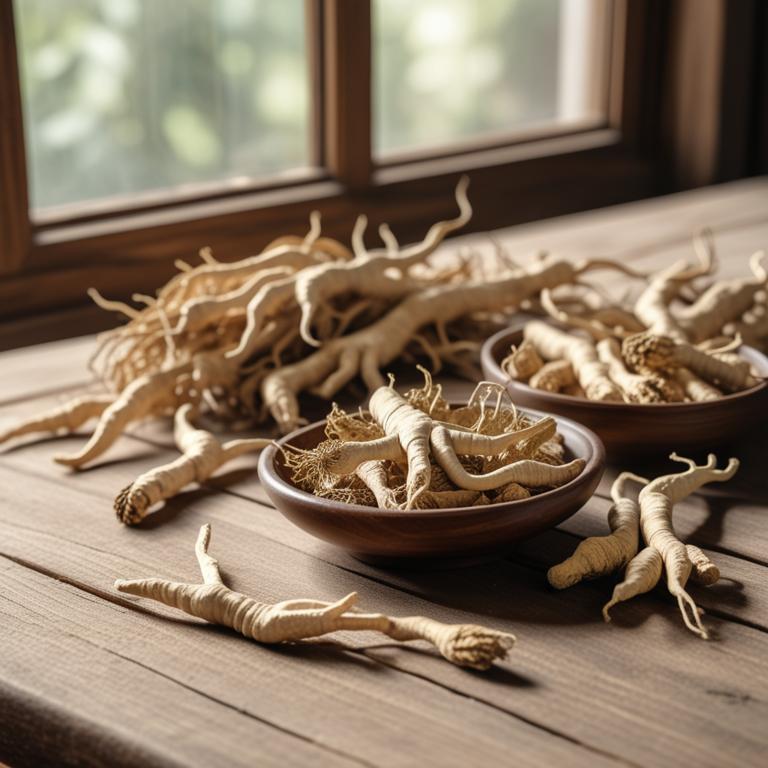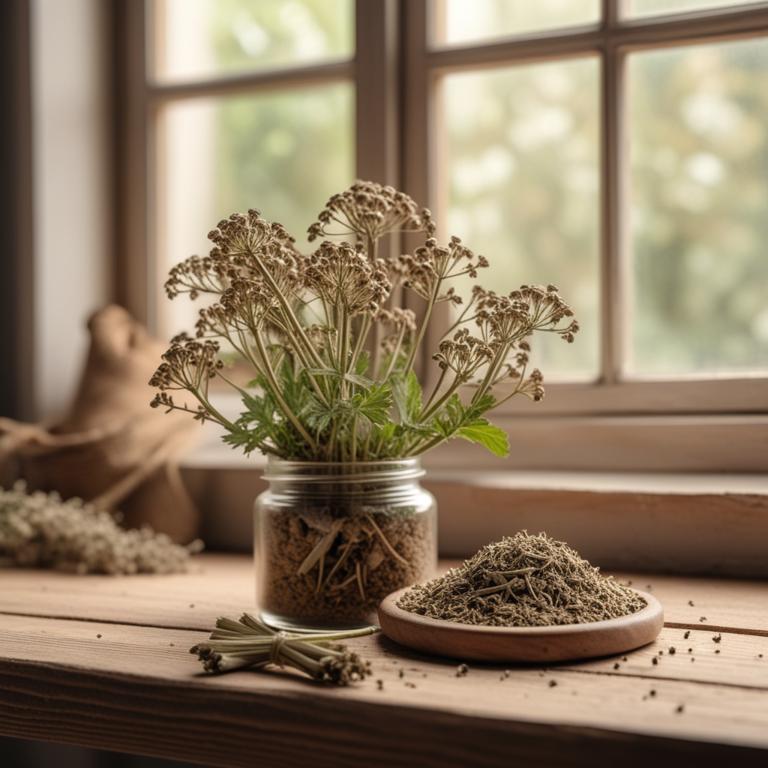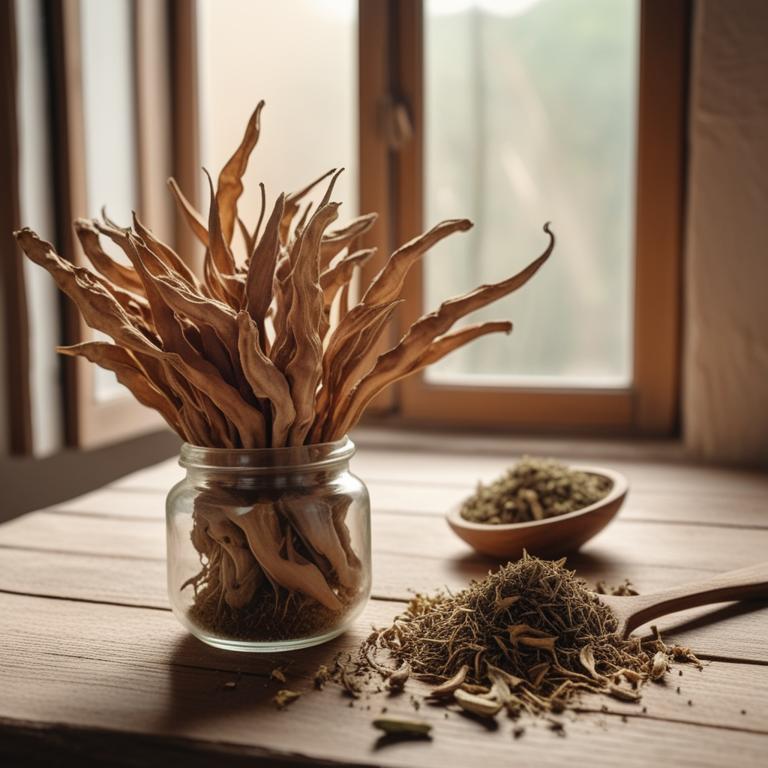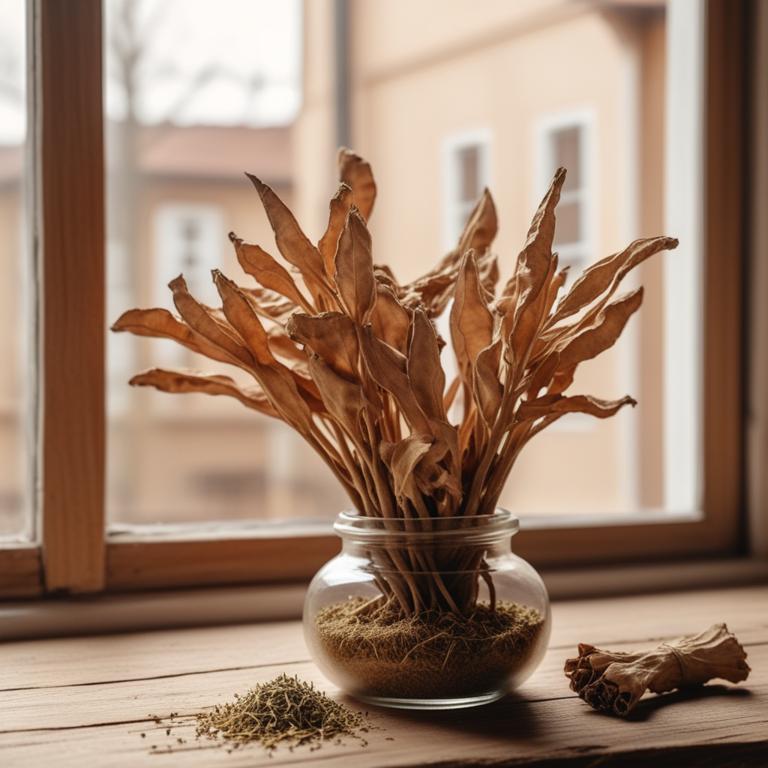Updated: Dec 1, 2024
Heart Pain Causes and Medicinal Herbs for Pain Relief
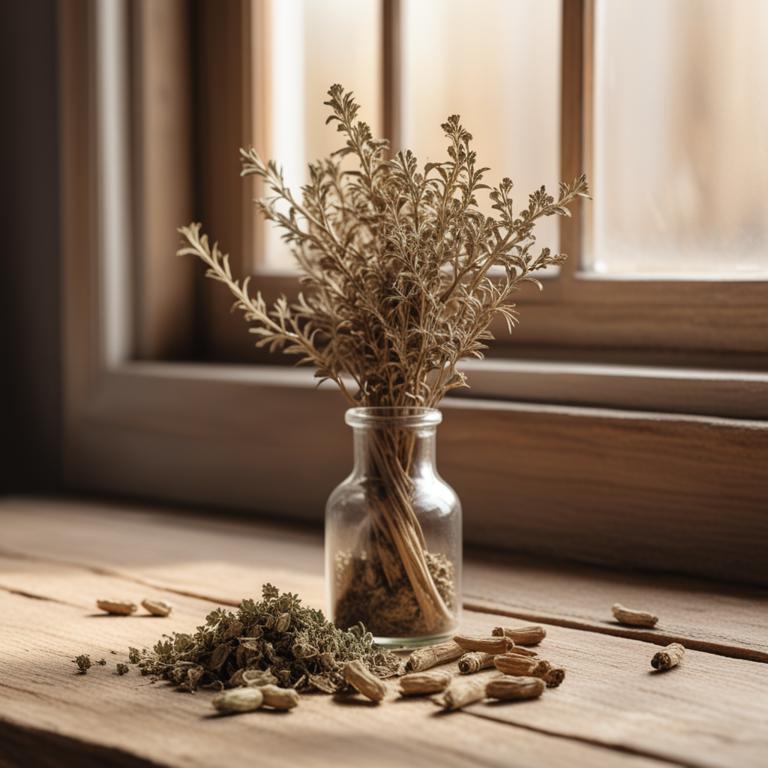
Heart pain, also known as angina, is a squeezing or tightness in the chest that can be very scary and affect your daily life.
It's usually a sign that your heart is not getting enough blood or oxygen. This can be caused by a variety of things, including high blood pressure, high cholesterol, diabetes, and smoking. When you're having a heart attack or experiencing severe heart pain, it's essential to get medical help right away. But if you're looking for some natural ways to help ease heart pain, there are some herbs that have been shown to have a positive effect. One of these herbs is hawthorn, which is a flowering plant that's been used for centuries to support heart health. It's believed to help improve blood flow to the heart and lower blood pressure.
You can find hawthorn in tea, capsule, or tincture form. Another herb that may help is garlic, which is known for its ability to lower cholesterol and blood pressure. You can add fresh garlic to your meals or take it in supplement form. Ginger is also a good choice, as it's been shown to help reduce inflammation in the body and improve circulation. You can make a tea by steeping fresh ginger in hot water or take it in capsule form. If you're looking for a soothing tea to help ease heart pain, you might try a blend of hawthorn, ginger, and peppermint. The peppermint can help calm your stomach and reduce nausea, while the ginger can help reduce inflammation and improve circulation.
This tea can be made by steeping dried herbs in hot water, or you can use a pre-made tea blend.
Table of Contents
What are the root causes of heart pain?
The main causes of heart pain are serious conditions that affect the heart's ability to function properly.
One of the most life-threatening causes is Myocardial Infarction, also known as a heart attack. This occurs when the blood flow to the heart is blocked, causing damage to the heart muscle due to lack of oxygen. This can happen when a blood clot forms in a coronary artery or when a coronary artery becomes severely narrowed due to plaque buildup. Another common cause is Angina Pectoris, a condition where the heart does not get enough oxygen-rich blood, leading to chest pain or discomfort. This can happen when the heart muscle is not getting enough blood flow, often due to plaque buildup or spasms in the coronary arteries.
A more rare but deadly cause is Aortic Dissection, which occurs when there is a tear in the inner layer of the aorta, the main artery that carries blood from the heart to the rest of the body. This can cause severe chest pain, and if left untreated, it can lead to organ failure and death. Cardiac Tamponade is another serious condition that can cause heart pain. In this condition, fluid accumulates in the sac surrounding the heart, putting pressure on the heart and preventing it from pumping properly. This can be caused by a variety of factors, including heart failure, pericarditis, and cancer. Finally, Pulmonary Embolism is a condition where a blood clot breaks loose and travels to the lungs, blocking blood flow and causing chest pain.
This can be a life-threatening condition, especially if left untreated.
What are the benefits of using herbs as a treatment for heart pain?
Using herbs for heart pain can be a great way to manage discomfort and reduce symptoms.
One of the main benefits is that these natural remedies can help to relax the muscles and calm the mind, which can be especially helpful when feeling anxious or stressed. They may also help to improve blood flow and lower blood pressure, which can reduce the strain on the heart.
Additionally, some herbs have anti-inflammatory properties, which can help to reduce swelling and pain in the chest area. Furthermore, using herbs can be a more gentle and holistic approach to managing heart pain, rather than relying on medication, which can have side effects.
By incorporating herbs into your daily routine, you may be able to reduce your reliance on medication and improve your overall well-being.
What medicinal herbs are commonly used to treat heart pain?

Herbs have been used for centuries to help alleviate heart pain, and they offer a natural and effective way to manage symptoms.
One herb that is particularly helpful is ginger, or Zingiber officinale. It contains compounds that help reduce inflammation and improve blood flow, which can help ease heart pain. Another herb, Ginkgo biloba, is known for its ability to improve circulation, which is essential for delivering oxygen and nutrients to the heart.
This can help reduce the risk of heart pain and improve overall heart health. Valeriana officinalis, or valerian root, is a natural relaxant that can help calm the mind and body, reducing stress and anxiety that can contribute to heart pain. Panax ginseng, also known as Asian ginseng, has been shown to improve blood flow and reduce inflammation, making it a valuable herb for heart health. Finally, Passiflora incarnata, or passionflower, is another natural relaxant that can help reduce anxiety and stress, which can contribute to heart pain.
By incorporating these herbs into your diet or using them as supplements, you can help alleviate heart pain and improve your overall heart health.
What are the most widely used herbal remedies for heart pain relief?
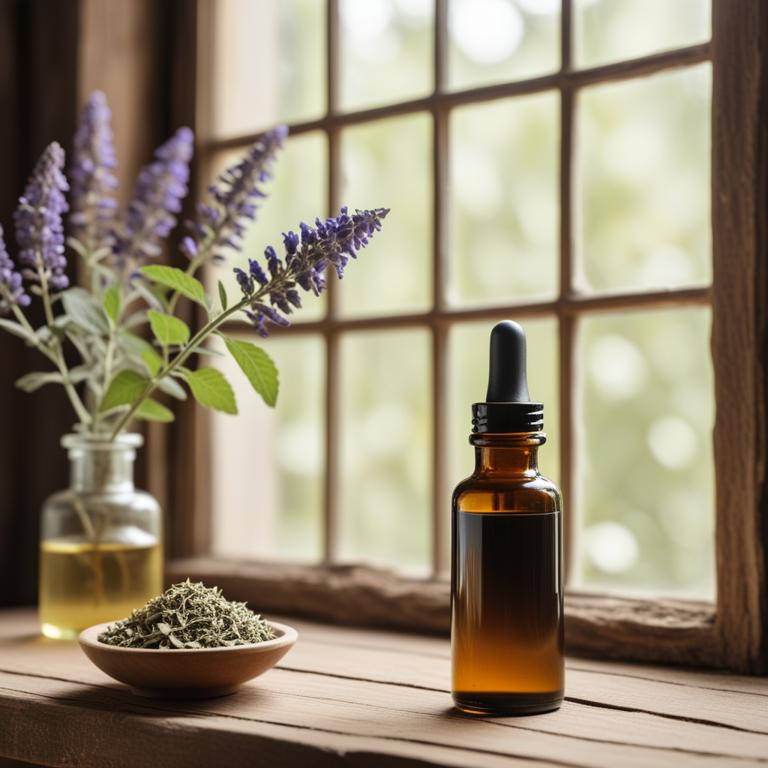
Herbal preparations can be a great way to help with heart pain.
A decoction is a strong liquid made by boiling herbs in water, and it's good for heart pain because it can help relax the blood vessels and improve blood flow. This can reduce chest pain and make it easier to breathe. You can make a decoction by boiling a teaspoon of dried herbs in a cup of water for 5-10 minutes. Herbal capsules are another option for heart pain relief. They contain a concentrated amount of herbs that have been powdered and put into a gelatin or vegetable-based capsule. The herbs in the capsule can help reduce inflammation and improve blood flow, which can help with heart pain. Look for capsules that have a high concentration of herbs like hawthorn, which is known for its heart-healthy properties. Infusions are similar to decoctions, but they're made by steeping herbs in hot water instead of boiling them.
This can be a gentler way to get the benefits of herbs, and it's often used to help with stress and anxiety, which can contribute to heart pain. You can make an infusion by steeping a teaspoon of dried herbs in a cup of hot water for 5-10 minutes. Herbal tinctures are liquid extracts of herbs that are made by soaking the herbs in a solvent like vodka or glycerin. Tinctures can be taken sublingually (under the tongue) or added to water or juice. They're often used to help with heart pain because they can be absorbed quickly into the bloodstream, providing fast relief. Look for tinctures that contain herbs like ginkgo biloba, which can help improve blood flow. Salves are topical preparations that can be applied directly to the skin to help with heart pain. They often contain herbs like arnica, which can help reduce inflammation and improve circulation. Applying a salve to the chest or neck can help relax the blood vessels and improve blood flow, which can help reduce heart pain.
Look for salves that are made with natural ingredients and are fragrance-free to avoid irritating the skin.
Additional Resources:
What herbs should be avoided if you experience heart pain?
If you're experiencing heart pain, it's crucial to be careful with certain herbs.
Taxus baccata, also known as yew, contains a toxic compound that can be extremely deadly if ingested in large amounts. This herb should be avoided at all costs. Digitalis purpurea, or foxglove, is another herb to be cautious with.
While it's sometimes used to treat heart conditions, taking too much of it can be fatal, so it's essential to follow a doctor's guidance if you're considering using it. Aristolochia clematitis, a type of birthwort, can cause damage to your kidneys and heart, making it a herb to steer clear of if you're already experiencing heart problems. Cinchona officinalis, or Peruvian bark, contains a compound that can slow down your heart rate, which might be okay for people with certain heart conditions, but it's still a herb that requires close monitoring. Aconitum napellus, or monk's hood, is a highly toxic herb that can cause serious heart problems, including irregular heartbeat and cardiac arrest.
If you have heart pain, it's best to stick to herbs that have been proven to be safe for your condition and to consult with a healthcare professional before using any new supplements.
FAQ
Are there any specific herbs that can prevent heart pain?
Turmeric contains a compound called curcumin, which has anti-inflammatory properties that may help prevent heart pain.
Ginger is also believed to reduce inflammation and improve blood flow, which can help prevent heart pain.
Both herbs have been used in traditional medicine for centuries to aid in heart health.
Is it safe to use herbal remedies for heart pain during pregnancy?
During pregnancy, it's best to avoid herbal remedies for heart pain unless absolutely necessary and under close supervision.
Some herbs can affect the heart or harm the unborn baby. If you're experiencing heart pain, try to identify the cause and address it.
If the pain persists, consider alternatives like warm baths, rest, and over-the-counter pain relievers.
Are there any herbs that can reduce the frequency of heart pain?
Some herbs like ginger and turmeric have been shown to help reduce the frequency of heart pain in people with certain conditions.
Ginger's anti-inflammatory properties may help ease pain, while turmeric's curcumin has antioxidant and anti-inflammatory effects that can help calm the heart.
They may also improve blood flow and reduce inflammation.
Related Articles
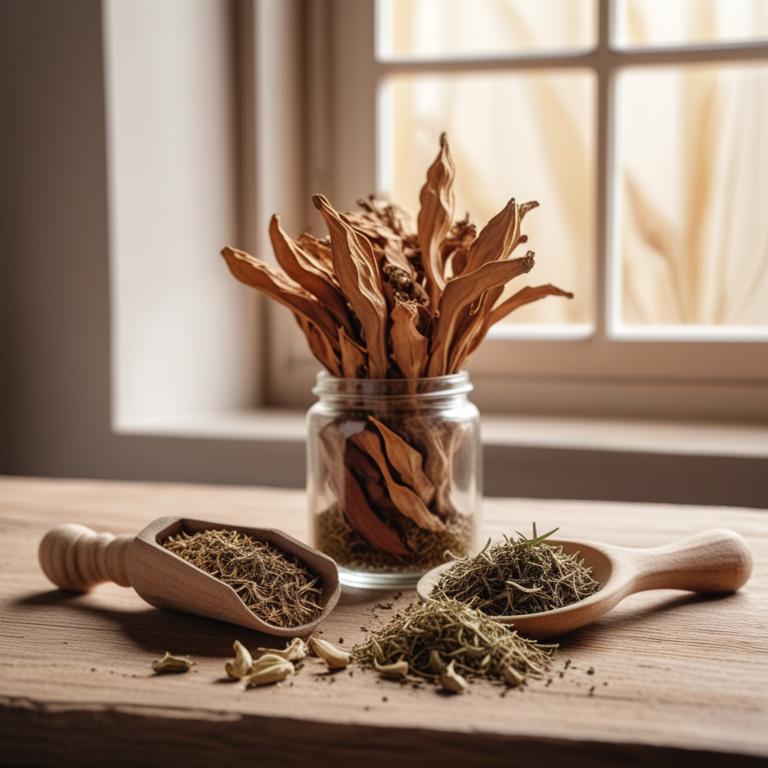
Heart Pain Causes and Medicinal Herbs for Pain Relief
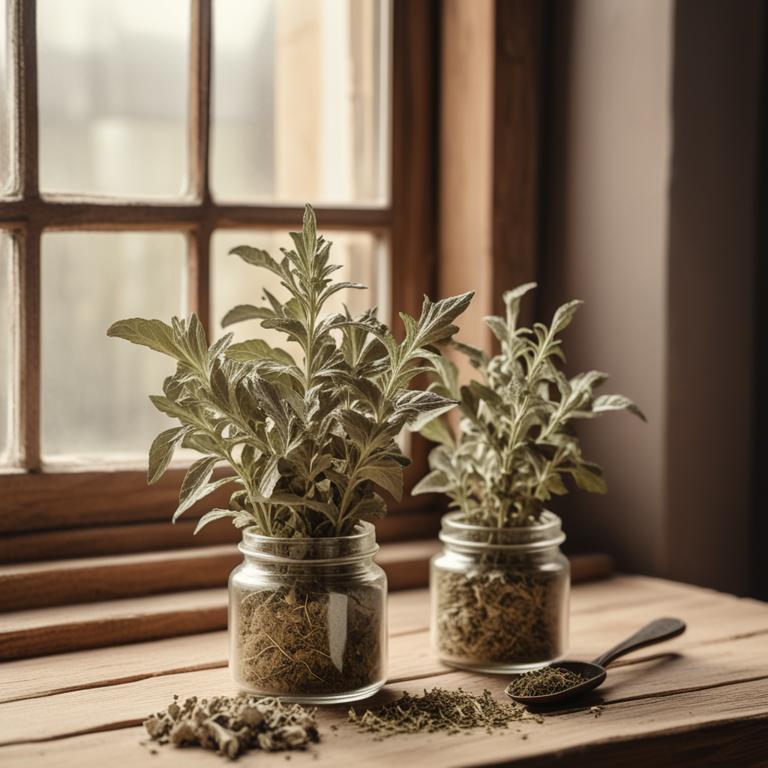
Natural Treatments for Congestive Heart Failure: Medicinal Herbs and Herbal Preparations
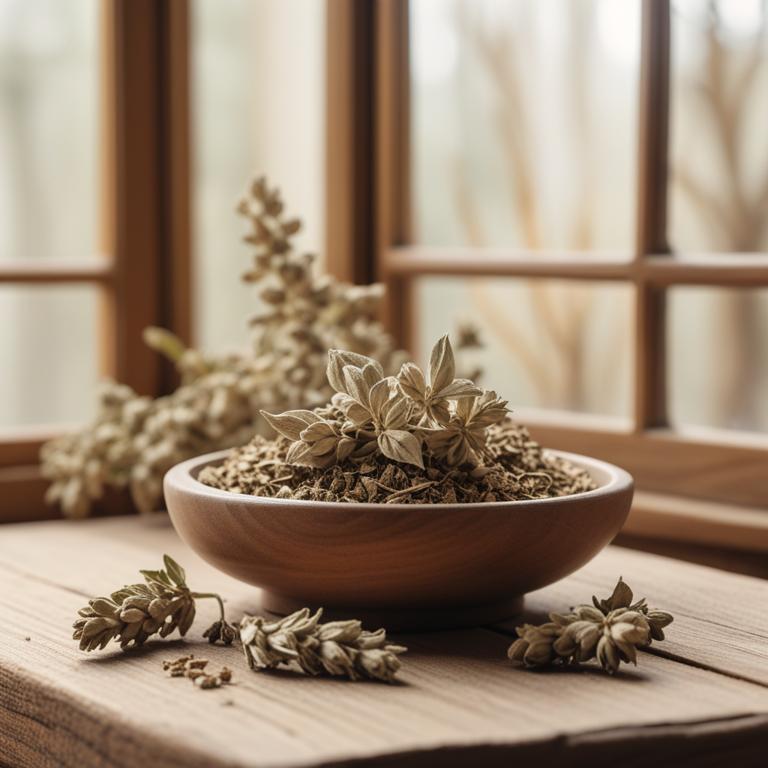
Hypertension and Herbal Remedies: Causes and Medicinal Herbs for Treatment
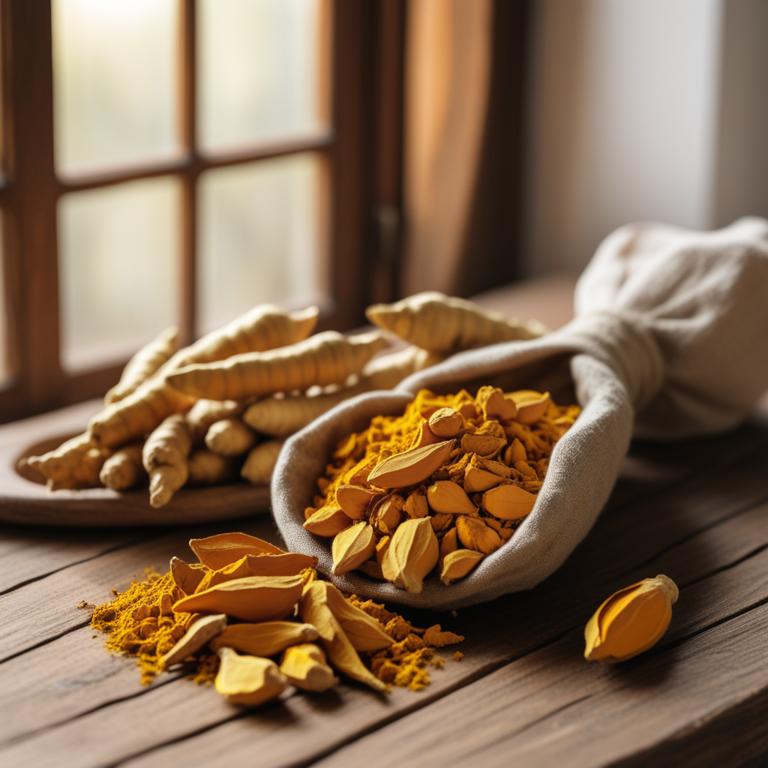
Arteriosclerosis: Unlocking Causes and Herbal Treatment Options
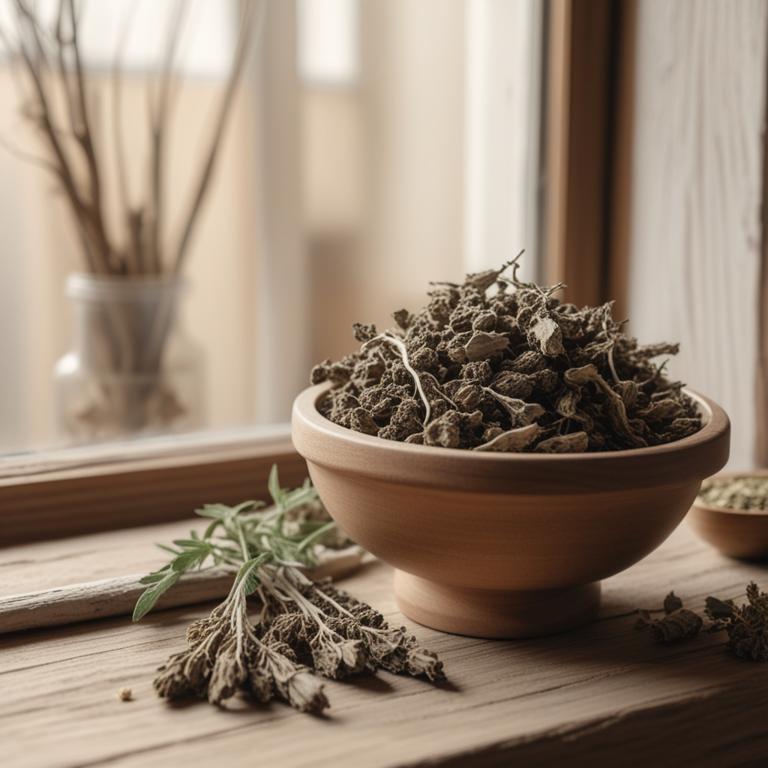
Peripheral Arterial Occlusive Disease: Natural Remedies and Herbal Preparations
